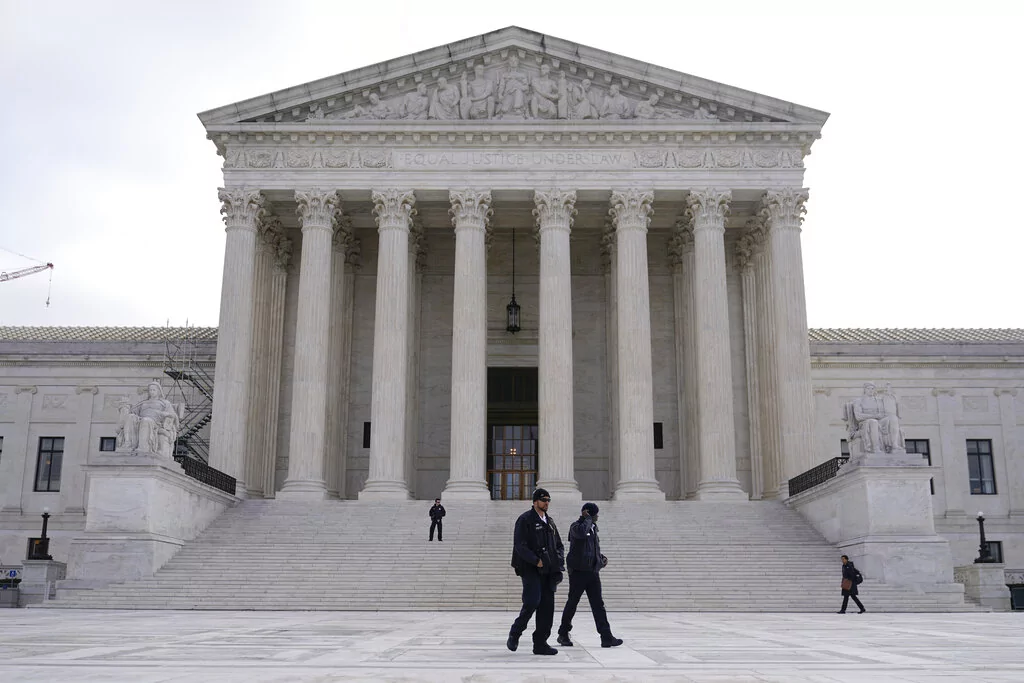
Just before oral arguments begin next week, the Supreme Court granted 15 new cases Friday for its new term, including yet another challenge surrounding the vaping industry.
The justices have already agreed to consider the Food and Drug Administration‘s case defending the rejection of two companies seeking to sell flavored vaping products. The new case is more technical and surrounds a Biden administration challenge to a controversial legal maneuver it claims has given the tobacco and vape industry a tool to fight regulations in more sympathetic federal courtroom venues.

The case focuses on the U.S. Court of Appeals for the 5th Circuit, one of the most conservative in the nation, which has become a more attractive venue for vape and tobacco industry giants seeking to contest regulations under the Biden administration.
Federal law states that corporations can challenge FDA policies in Washington, D.C., federal court, or where the company’s place of business is located. But under a rule in the 5th Circuit, plaintiffs have been allowed to bring challenges to that venue so long as a product made by the principal company is sold by a retail store within the 5th Circuit’s jurisdiction, which spans Texas, Mississippi, and Louisiana.
“This Court should grant review to put a stop to that practice,” U.S. Solicitor General Elizabeth Prelogar wrote in court filings, signaling a direct feud with the looser restrictions under the 5th Circuit.
Beyond the question of venue shopping, the underlying dispute surrounds the FDA’s denial of North Carolina-based R.J. Reynolds Vapor Company’s bid to introduce three flavored vapes to the market. The company sells its products at convenience stores in the three states under the 5th Circuit’s jurisdiction, so it has been able to take advantage of the appeals court’s looser restrictions.
Case Western Reserve University Law School professor Jonathan Adler described the case as one that “could curtail forum shopping in administrative law cases.”
“In FDA v. Reynolds Vapor government seeks limit on ability of manufacturers to forum shop by having retailers join the case,” Adler said.
The bulk of forum shopping, a colloquial term that entails choosing a court or jurisdiction where a victory is considered more likely, is typically aimed at a specific type of litigation, such as patent cases.
More recently, criticism of forum shopping has been levied at other legal efforts to shift administrative law and notably became a talking point when a federal district court judge in Texas agreed to suspend the FDA’s 2000 approval of the drug mifepristone, which is one of two drugs taken to induce a chemical abortion. That matter rose all the way to the Supreme Court, and the justices ruled earlier this year to maintain the status quo on access to the abortifacient.
More cases added for the fall 2024-25 term
Although the justices took up 15 additional cases, the move ensured 13 additional oral argument sessions due to some of the cases being consolidated for efficiency.
Another notable grant Friday surrounded a dispute on whether Mexico can bring a $10 billion lawsuit against U.S. gun manufacturers for allegedly facilitating the flow of firearms to drug cartels. The case is known as Smith & Wesson Brands v. Estados Unidos Mexicanos.
The Supreme Court also agreed to take on a somewhat rare capital case over a death row inmate’s bid to obtain post-conviction DNA testing that he claims would exonerate him. The grant of Ruben v. Luis is notable because the justices are already planning to consider a separate capital case involving Oklahoma death row inmate Richard Glossip.
Other new disputes for the justices to consider this term involve a reverse discrimination case out of Ohio, an environmental case about the storage of spent nuclear fuel, and a Fourth Amendment challenge surrounding limits to police officers’ use of force during possibly deadly encounters, among others.
CLICK HERE TO READ MORE FROM THE WASHINGTON EXAMINER
The justices have now added 43 cases to their schedule for the term, and more are likely to come as early as next week, in addition to a litany of denials, as the justices receive thousands of petitions each year.
The justices are already poised for a blockbuster term, including a dispute over whether states can bar minors from receiving transgender hormone treatments, age verification laws for adult film websites, and oral arguments next week on the Biden administration’s “ghost gun” crackdown.




